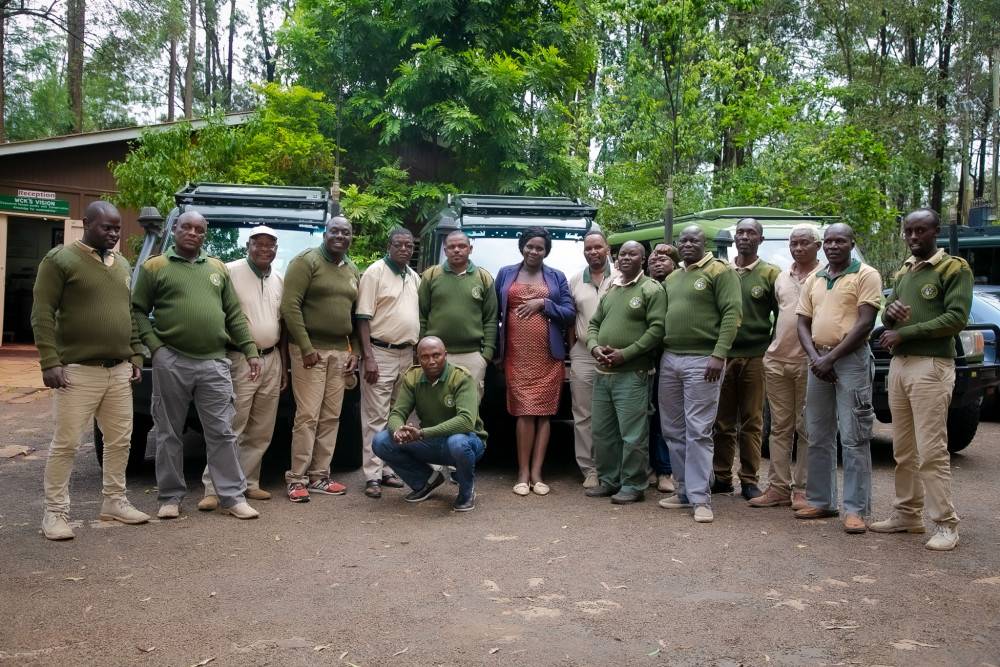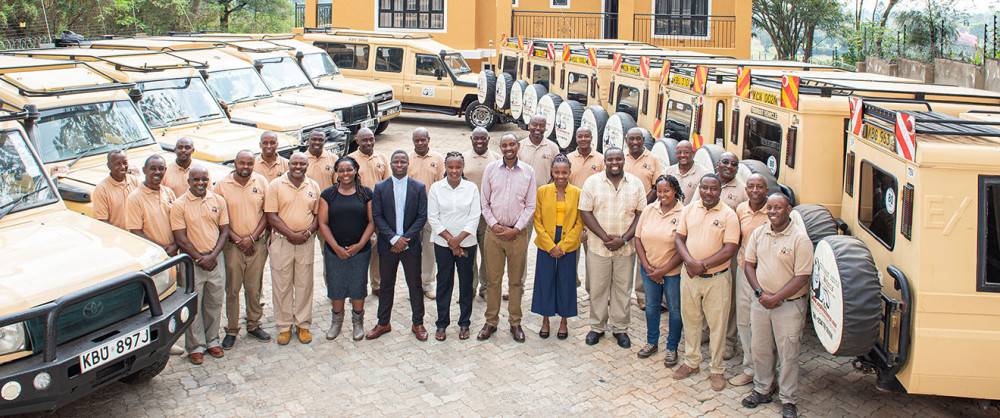Recommended Reasons For Selecting Devil666 Slot Sites
Recommended Reasons For Selecting Devil666 Slot Sites
Blog Article
What Security And Safety Considerations Must I Know Before Visiting Mombasa, Kenya For A Trip?
For a relaxing holiday in Mombasa Kenya it is essential to consider safety and security. These are the top points to keep in mind.
1. General Safety
Keep yourself informed. Keep abreast of local news, as well as travel advisory information from your country of residence.
Sign up at the Embassy of your choice.
2. Health Precautions
Vaccinations - Ensure that you've had all your regular vaccinations. Also, consider taking additional vaccinations for Hepatitis-A and Hepatitis B, Typhoid Fever, as well as Yellow Fever.
Mombasa's malaria is an endemic. Make use of antimalarial medications as well as insect repellents. Sleep in mosquito nets. Wear long sleeves.
Water and food safety Avoid eating ice and drink boiling or bottled water. Eat well-cooked foods. Be cautious with street food.
3. Personal Security
Avoid walking alone at night. Make sure you are in areas and crowded with people. Avoid walking at night at night on the beach, and in areas that are quiet.
Hotel safes are a good option for storing valuables such as passports, currency, and other important items. Do not display expensive items such as jewelry or electronics.
Choose reputable travel: Choose certified taxis and ride-hailing firms or make use of the transportation offered by the hotel. Avoid taxis with no markings.
4. Local Laws and Customs
Respect local culture: Dress modestly, especially when visiting religious sites. Be aware of local customs and rituals.
Kenyan drug laws are extremely strict, and they carry serious sanctions. Avoid illegal drugs.
Get permission prior to taking photographs of people living in rural areas and military buildings or government offices.
5. Beach and Water Safety
Safety in swimming means paying attention to the local advice on currents and conditions. Swim in designated areas.
Marine wildlife: Be aware of marine creatures like jellyfishes and sea urchins. When you walk on the beach, make sure you be wearing the appropriate shoes.
6. Crime Prevention
Petty Crimes: Pickpocketing, bag stealing and other small crimes can happen in busy areas. Keep your belongings close and be vigilant.
Beware of people who offer extravagant assistance or discounts that appear too good-to-be-true. Choose tour operators that are licensed.
Emergency Contacts: Know the emergency numbers in your area: Police (999), Fire (999), and Ambulance (999). Contact details for the embassy and consulate of your country should be kept handy.
7. Natural Hazards
Weather: Mombasa experiences a tropical climate. The possibility of heavy rainfall and flooding are possible, especially during rainy season. Weather forecasts are important.
Sun Protection Use sunscreen and wear a hat in order to prevent sunburn.
8. Travel Insurance
Comprehensive Coverage: Ensure you have travel insurance that will cover medical emergency situations, theft, loss and travel interruptions. Check that your policy provides coverage for any activities, like water sports.
Enjoy your vacation in Mombasa without stressing about safety or security by keeping these suggestions in mind. Read the best airport transfers kenya for more recommendations including travel tours in kenya, safar kenya, kenya africa travel, tours & safaris, african safari tours, travel tours in kenya, african safari excursions, afri safari, beach in mombasa, mombasa travel agency and more.
What Cultural Sensitivity Considerations Should I Be Aware Of When I Travel To Mombasa In Kenya?
It is crucial to be respectful of the local culture when you travel to Mombasa. This will make for a more enjoyable experience. Consider these key factors:
1. Be respectful of local dress codes
Mombasa is home to a substantial Muslim number of Muslims. It's appropriate to dress modestly, particularly in public spaces, religious sites, and neighborhood areas. This includes covering the shoulders, chest and even the knees.
Beachwear. Swimwear may be worn on the beach, but it should be covered up if visiting nearby restaurants or shops.
2. Religious Sensitivity
Visit Mosques. If you plan to visit a Muslim mosque make sure you have permission to enter and wear traditional attire. Women should cover their heads with a covering and everyone should remove their shoes prior to entering a mosque.
Prayer Times: Always be mindful of the five times to perform daily prayers. Be respectful particularly if you're in the vicinity of a Muslim mosque.
3. Photography Etiquette
Permission: Before taking pictures of anyone, make sure you get permission from them. This is crucial in areas of rurality or locations that have traditional values. People who are uncomfortable may think that the photographs are too intrusive.
Zones that are restricted: Do not snap photos in areas of concern including military installations, government buildings or sites of cultural significance, where photography is prohibited.
4. Social Interactions
It is essential to greet people politely. Swahili uses a greeting known as "Jambo" which is also known as "Hello". For Muslim women, it is considered considerate to wait until they extend their hands first, or to simply say hello in a formal manner.
Personal Space: Pay attention to the importance of respecting personal space.
5. Cultural Taboos and Cultural Norms
Shows of affection in public: Avoid publicly displayed displays of affection because they are considered inappropriate.
Use of the Left Hand Left Hand: Left-handed hands have traditionally been considered dirty. Use your right hand to eat or greet people, as well as trade goods or money.
Foot: It's rude to show the soles or show your feet to other people.
6. Language and Communication
Basic Swahili A few phrases from Swahili will be a great way of building respect and establishing rapport with the locals. Common phrases include "Asante" (Thank you) and "Habari" (How are you? ).
Politeness is essential. Be patient and polite when communicating. Kenyans appreciate respectful and courteous interactions.
7. Be respectful of local Customs
Respecting traditional practices Respecting the traditional ceremonies and customs. If you're invited for an event in your area, follow your hosts and observe their behavior.
Bargaining can be commonplace at markets and at local stores. Make sure you do it respectfully and with an attitude of humor. It's cultural rather than confrontational.
8. Alcohol and Smoking
Alcohol is readily available, but should only be consumed in a discreet way. This is especially true for areas with a majority Muslim population. Beware of public drinking.
Smoking cigarettes is not allowed in public areas. Smoking areas are usually designated.
9. Environmental Respect
Littering. Avoid littering. Be sure to get rid of your trash properly. Be respectful of wildlife, natural habitats, and other animals.
Conservation: Support conservation efforts and respect local wildlife and their habitats. Beware of buying products made of endangered species.
10. Supporting Local Communities
Local Businesses - Support local markets and businesses.
Responsible Tourism - Choose sustainable options and local tourism to help local communities.
If you follow these guidelines on cultural sensitivity, your visit to Mombasa will be more meaningful, respectful, and enriching. Take a look at the top park funzi for site examples including kenya tourism, mombasa tour companies, kenya safaris, travel tour companies, trips to kenya safari, tour mombasa, africa tours and safaris, tours and safaris, tours and safaris, africa safaris and tours and more.
What Financial Planning Considerations Should I Be Aware Of Prior To My Trip To Mombasa Kenya?
If you are contemplating your trip to Mombasa, Kenya be sure to plan your finances well. This will ensure the trip will be enjoyable. Take note of these financial considerations:
1. Budgeting
Accommodation: Reserve your lodging well in advance. The cost of lodging is significantly based on its kind and its location.
Include transport costs like flights, taxis and matatus (local transportation), and car rentals.
Food and dining Budget for meals including eating out, and snack items. Prices vary from cheap local eateries to premium dining establishments.
Plan activities and tours. This includes entry fees for attractions and guided tours, as well as activities like safaris, water sports, cultural tours and much more.
2. Rates of exchange and currency
Kenyan Shilling is the local currency. Learn about the exchange rate.
Currency Exchange You can exchange your cash with reputable currency exchange companies or banks. Do not exchange currency in the street.
ATMs: Mombasa has many ATMs. Make sure that your credit card is able to be used for international withdrawals. Also, be sure to check for fees.
3. Payment Methods
Cash: Have some cash on you for small purchase, tipping, or other places that do not take credit cards.
Credit and Debit Cards Major credit cards are accepted at restaurants, hotels, and larger shops. Inform your bank as quickly as you are aware of your plans to ensure that your card is not blocked.
M-Pesa: M Pesa has become an extremely popular mobile payment system in Kenya. It's an excellent option if are planning to use an SIM card for Kenya.
4. Make money using these simple tips
Travel during shoulder or low seasons (April to June, and October-December) to save money on lodging and flights.
Plan your travel well in advance so you can get better rates on flights.
Local Eateries. Restaurants and food stands around your neighborhood for a more authentic and less expensive experience.
5. Tipping
Tipping is customary in Kenya. In restaurants 10% is the norm to tip if services are not included. Gratuities for guides, hotel staff and drivers at your discretion.
It's nice to leave small tips in the local currency. Porters should be tipped KES 50-100 per bag and housekeepers KES $100 per day.
6. Emergency Funds
Reserve funds: Keep an emergency fund of cash available and ensure you have access to additional funds through a credit or debit card.
Travel Insurance: Make sure you have comprehensive travel coverage that covers medical emergencies, cancellations and property loss.
7. Security
Hotel safes are an excellent storage space for valuables such as passports as well as extra cash. Avoid ATMs at night.
Avoid Carrying Big Sums. Avoid carrying large cash in your. Divide your credit cash and cards between your wallet and an area which is secure.
8. Local Transactions
Bargaining at local markets is quite common. It is important to treat the negotiation with dignity, respect and a goal of achieving the best deal.
Receipts and records Record receipts for significant purchases and transactions. Budget tracking and dispute resolution may profit from this.
9. Understanding Fees
Contact your bank for more information regarding international withdrawal fees. Certain ATMs could charge a fee when using foreign cards.
Charges for Currency Conversion Be aware that banks might charge conversion fees when you make use of your credit or debit card overseas.
You will be able to enjoy a stress-free trip to Mombasa by directing your money efficiently. View the top kenya safaris Afrika for more examples including mombasa travel agency, kenya africa travel, kenya tours, tour mombasa, kenya safari and beach packages, tours and safaris in kenya, africa and safari, african safari africa, safari company kenya, safari a nairobi and more.